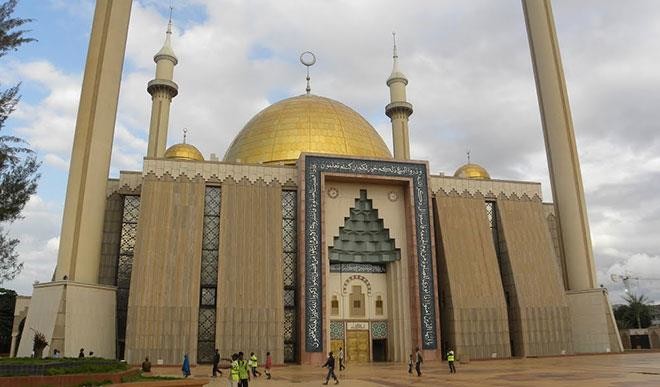Time to appoint Chief Imam for National Mosque
The delay from controversies over the appointment of a Chief Imam for the National Mosque Abuja has become of concern to the Muslim Ummah. In Islam, there is no vacuum in leadership. It is over two years that the Chief Imam of the Mosque, Ustaz Musa Muhammad, died at 68. It is worrisome that the […]


The delay from controversies over the appointment of a Chief Imam for the National Mosque Abuja has become of concern to the Muslim Ummah. In Islam, there is no vacuum in leadership. It is over two years that the Chief Imam of the Mosque, Ustaz Musa Muhammad, died at 68. It is worrisome that the leadership of the Nigeria Supreme Council for Islamic Affairs (NSCIA) in consultation with the Muslim elite in Nigeria have been unable to appoint a replacement. How much more time is required to fill this very sensitive position?
The National Mosque, even before the demise of Ustaz Muhammad, who was the pioneer Chief Imam, had three deputies, who conscientiously were appointed to strike a balance. They are all PhD holders appointed in July 2012 after thorough screenings for which the pioneer Chief Imam was also requested to undergo. They are Dr. Sheikh Ibrahim Ahmad Maqari, Sheikh Ahmad Onilewura and Dr. Muhammad Adam Muhammad. The three have been leading the Friday prayers in turn for such a long time that the need for the appointment of one of them is ripe. However, it was Sheikh Maqari who led the first Jum’at service after the death of the Chief Imam.
Sheikh Muhammad, from Jos, capital of Plateau State, spent over 30 years as the Chief Imam having been appointed in 1985 when the mosque was ready for use. The then President-elect, Muhammadu Buhari described him as an inspirational leader who preached love among men and women and fought hard to diminish divisive tendencies in Nigeria.
Since 2015, there have been indications that a new Chief Imam would be appointed. There was a time the news flickered that an Imam has been appointed which the Secretary General of NSCIA, Prof. Ishaq Oloyede dissipated, saying that the three deputy Imams would be acting on rotational basis till when the Abuja National Mosque management committee headed by Etsu Nupe, Alhaji Yahaya Ibrahim, would meet and make recommendations to the NSCIA before a new and substantive Chief Imam would be appointed.
It is worrisome why the controversies have persisted while the method of choosing an Imam or leader in Islam is stated in the Qur’an, clearly exemplified by noble Prophet Muhammad (SAW) and adhered to by the companions and the guided salaf. The Imam can be chosen by consensus (ijma’), by consultation and the exchange of views among the prominent members of the Muslim community or by the Imam nominating his own successor as it happened in the case of Umar who was appointed by Abu Bakr without any objection being raised by the Muslims.
In Fiqh as-Sunnah volume 2, page 56, the one who should be Imam is the one who is the most-versed in the Qur’an. If two or more people are equal in this regard, then it is the one who has the most knowledge of the sunnah. If they are equal in that, then it is the one who performed the migration first. If they are equal in that, then it should be the eldest.
Abu Mas’ud al-Ansari reported Allah’s Messenger (may peace be upon him) as saying: The one who is most-versed in Allah’s Book should act as Imam for the people, but If they are equally versed in reciting it, then the one who has most knowledge regarding Sunnah if they are equal regarding the Sunnah, then the earliest one to emigrate; it they emigrated at the same time, then the earliest one to embrace Islam. No man must lead another in prayer where (the latter) has authority, or sit in his place of honour in his house, without his permission.
The Imam must possess all the qualities required of a believing Muslim. Apart from the moral and physical requirements, the Imam must be the most knowledgeable, most wise, most courageous, most generous, and most God-fearing. Having a PhD is not the issue. The three deputy Imams should undergo series of screenings to get one Chief Imam for the Nigerian Muslim Ummah. Merely as an observer and a worried Muslim on this lingering matter, I have monitored their sermons and Islamic activities and found them worthy. I think there is no need for an Imam from outside the three. But however, there are assurances that the recitation/knowledge of the Qur’an, composure during Friday activities and knowledge in the fiqh of prayer and sunnah cannot be equal. One should, therefore, be appointed and the two remain deputies. If there be the need for more deputies, the committee saddled with that responsibilities should do justice.
There are also great Imams around Abuja. These great scholars can complement the required workforce, if need be, in the running of the National Mosque Abuja. May I use this medium to thank all the Imams for their selfless services including the sermon translators to national languages, Sheikh Abubakr Siddeeq and Barrister Haroun Ezeh. And we pray and yearn to have a Chief Imam for our National Mosque as soon as possible, an Imam who will be humble, energetic, vibrant, nationalistic, generous, humane, and one who is abreast with Nigerian and global politics, not conservative and reserved. May Allah (SWT) continue to guide the leadership of the Muslim Ummah in Nigeria and the world. Ameen.
Ajah wrote in from Garki, Abuja.
